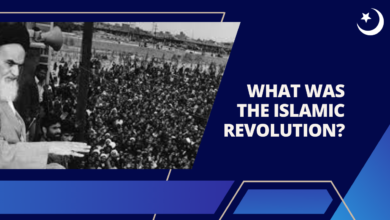
Which Hadith do Sunnis follow?
Hadiths are the sayings, actions, and approvals of the Prophet Muhammad. They are crucial in Sunni Islam because they provide guidance on how to follow and interpret the Quran.

Introduction
Sunnis make up the largest branch of Islam, comprising approximately 85-90% of the Muslim population worldwide. One of the fundamental sources of guidance for Sunni Muslims is the Hadith, a collection of sayings, actions, and approvals of the Prophet Muhammad (peace be upon him). However, with a vast array of Hadith literature available, it’s important to understand which Hadith collections Sunnis primarily follow and how they determine their authenticity.
The Importance of Hadith in Sunni Islam
In Sunni Islam, the Quran is the primary source of guidance, followed by the Hadith, which elaborates on the teachings of the Quran. Hadiths provide context, clarification, and practical examples of how to implement Quranic principles in daily life. These Hadiths are considered essential for understanding the Prophet’s life, his character, and his interpretation of the Quran.
Sunnis generally accept the six canonical Hadith collections, known as the “Sahih Sittah” or the “Six Authentic Books,” as the most reliable sources of Hadith:
- Sahih al-Bukhari: Compiled by Imam Muhammad ibn Ismail al-Bukhari (810-870 CE), it is widely regarded as the most authentic Hadith collection.
- Sahih Muslim: Compiled by Imam Muslim ibn al-Hajjaj (817-875 CE), this collection is considered second in authenticity after Sahih al-Bukhari.
- Sunan Abu Dawood: Compiled by Imam Abu Dawood (817-889 CE), it focuses on legal rulings and is highly respected among Sunnis.
- Sunan at-Tirmidhi: Compiled by Imam Abu Isa Muhammad at-Tirmidhi (824-892 CE), it emphasizes Hadiths related to manners and etiquette.
- Sunan an-Nasa’i: Compiled by Imam Ahmad ibn Shu’ayb an-Nasa’i (830-915 CE), it is known for its meticulous authentication process.
- Sunan Ibn Majah: Compiled by Imam Muhammad ibn Yazid Ibn Majah (824-887 CE), it contains a wide range of Hadiths, including those related to ethics and daily life.
These collections are revered for their rigorous authentication methods and have undergone extensive scrutiny by Islamic scholars over the centuries.
Authenticity and Grading of Hadith
Sunnis rely on a rigorous methodology to determine the authenticity of Hadith. Scholars of Hadith employ a science called “Hadith authentication” or “Ilm al-Hadith” to assess the credibility of a Hadith. The process includes:
- Isnad (Chain of Narrators): Scholars examine the chain of narrators to ensure that it is continuous and free from any unreliable or untrustworthy individuals.
- Matn (Content): The content of the Hadith is scrutinized for consistency with the Quran and other authenticated Hadiths. Anything contradicting established Islamic beliefs is rejected.
- Agreement with the Principles of Islamic Jurisprudence (Usul al-Fiqh): A Hadith should not contradict established principles of Islamic jurisprudence.
- Absence of Hidden Defects (‘Illah): Scholars examine Hadiths for any hidden flaws that might not be apparent at first glance.
Also Check
- What is Hadith?
- Who are Munkar and Nakir in Islam?
- Why is Friday important for Muslims?
- Do Muslims eat meat?
- Why do Muslims cover their face?
Conclusion
In Sunni Islam, the Hadith plays a pivotal role in understanding and implementing the teachings of Islam. Sunnis primarily rely on the Sahih Sittah, a collection of six authentic Hadith books, to gain insight into the life and teachings of the Prophet Muhammad (peace be upon him). These collections have been meticulously compiled and authenticated by Islamic scholars over the centuries.
The importance of authenticating Hadith cannot be overstated, as it ensures that only reliable and credible sayings and actions of the Prophet Muhammad (peace be upon him) are followed by Sunni Muslims. The rigorous process of Hadith authentication safeguards the integrity of Islamic teachings and guides millions of believers in their daily lives, emphasizing values of compassion, justice, and devotion to God.
FAQs about Hadiths Followed by Sunnis
What are Hadiths, and why are they important in Sunni Islam?
Hadiths are the sayings, actions, and approvals of the Prophet Muhammad. They are crucial in Sunni Islam because they provide guidance on how to follow and interpret the Quran.
Which collection of Hadiths do Sunnis primarily follow?
Sunnis primarily follow the Hadith collections of Sahih al-Bukhari and Sahih Muslim. These collections are considered the most authentic and reliable.
Are there other important Hadith collections followed by Sunnis?
Yes, in addition to Sahih al-Bukhari and Sahih Muslim, Sunnis also consider Hadiths from other collections like Sunan Abu Dawood, Sunan at-Tirmidhi, Sunan an-Nasa’i, and Sunan Ibn Majah.
How do Sahih al-Bukhari and Sahih Muslim differ from other Hadith collections?
Sahih al-Bukhari and Sahih Muslim are considered the most authentic because their compilers, Imam Bukhari and Imam Muslim, employed rigorous criteria to ensure the reliability of the narrators and the content of the Hadiths they included.
Are all Hadiths in Sahih al-Bukhari and Sahih Muslim accepted without question by Sunnis?
While these collections are highly respected, not every Hadith within them is accepted without question. Scholars carefully study each Hadith’s chain of transmission (Isnad) and content (Matn) to determine its authenticity and relevance.
Can Sunnis refer to Hadiths from other collections as well?
Yes, Sunnis can refer to Hadiths from other collections, but they consider the authenticity and reliability of each Hadith by examining its chain of narrators and its compatibility with Quranic teachings and other authentic Hadiths.
Do Sunnis reject all Hadiths not found in Sahih al-Bukhari and Sahih Muslim?
No, Sunnis do not reject all other Hadiths. They recognize the importance of a variety of Hadith collections, and the authenticity of a Hadith is determined based on scholarly analysis, not solely on the collection in which it is found.
Are there any Hadiths that are universally accepted by all Sunni scholars?
Yes, there are Hadiths that are universally accepted by Sunni scholars, known as Mutawatir Hadiths. These Hadiths have been transmitted by numerous reliable narrators to the extent that doubt about their authenticity is virtually impossible.
How do Sunnis use Hadiths in their daily lives and religious practices?
Sunnis use Hadiths to gain a deeper understanding of Quranic teachings, to derive legal rulings (fiqh), and to seek guidance on various aspects of daily life, including worship, ethics, and interpersonal relations.
What role do qualified scholars play in interpreting and applying Hadiths for Sunnis?
Qualified scholars play a crucial role in interpreting and applying Hadiths, as they use their knowledge of Islamic jurisprudence (fiqh) and Hadith sciences to ensure accurate understanding and application of Hadiths in different contexts.






![Title: Finding Solace and Tranquility in Surah Fajr In a world engulfed by constant chaos, stress, and anxieties, seeking solace and tranquility has become a universal pursuit for many individuals. For the believers of Islam, finding peace amidst life's challenges is often sought through recitation and reflection on the Quran, the holy book that serves as a divine guidance for Muslims. One particular chapter that holds significant potential for comfort and serenity is Surah Fajr. Surah Fajr, the 89th chapter of the Quran, is a profound and emotionally charged Surah that contains essential lessons and reminders for believers. The Surah is a powerful representation of the fleeting nature of life and the consequences of human actions. It comprises thirty verses that were revealed in Makkah, during a time of great turmoil and adversity for the early Muslims. The Surah begins by bearing witness to the dawn, a time symbolizing hope, renewal, and new beginnings. In this context, the Surah describes the people of Thamud and their unjust treatment of their Prophet, Saleh, who was sent to guide them away from their sinful ways. The destruction that befell them serves as a stark reminder of the consequences of turning away from divine guidance and persisting in wrongdoing. One of the most powerful and emotionally charged verses of Surah Fajr is the fifth verse: "And as for man, when his Lord tries him and [thus] is generous to him and favors him, he says, 'My Lord has honored me.'" This verse highlights the nature of human beings, who tend to become arrogant and ungrateful during times of prosperity, forgetting the source of their blessings. The following verse presents a contrasting scenario: "But when He tries him and restricts his provision, he says, 'My Lord has humiliated me.'" Here, the Surah emphasizes the tendency to despair during times of hardship, often failing to recognize the wisdom behind trials. However, Surah Fajr does not merely focus on the gloomy aspects of life. It provides a profound sense of hope and consolation, reminding believers that life is a test and a means for spiritual growth. As verse 28 states: "Return to your Lord, well-pleased and pleasing [to Him]." This verse encourages believers to remain content and grateful during both times of ease and hardship, trusting in Allah's wisdom and submitting to His will. The Surah concludes with a powerful reminder of accountability, as every soul shall be held accountable for its deeds. Verse 30 states: "But as for he who is given his record in his left hand, he will say, 'Oh, I wish I had not been given my record.'" This verse serves as a warning to those who indulge in wrongdoing and choose to ignore divine guidance, urging them to reflect and rectify their ways before it is too late. Reciting Surah Fajr and pondering its meaning can have a profound impact on an individual's psyche. It offers solace and tranquility by instilling a sense of purpose and perspective, helping believers navigate life's challenges with a renewed sense of faith and determination. Here are some ways believers can find solace and tranquility in Surah Fajr: 1. **Reflection and Contemplation:** Take time to read and ponder the verses of Surah Fajr. Allow its messages to penetrate your heart, and contemplate on the transient nature of life and the importance of gratitude and humility. 2. **Prayer and Connection:** Incorporate the recitation of Surah Fajr in your daily prayers. Establishing a strong connection with Allah through prayer and remembrance can bring inner peace and a sense of tranquility. 3. **Learning from the Past:** Draw lessons from the stories mentioned in the Surah, such as the people of Thamud, and use them as a guide to avoid repeating their mistakes. 4. **Gratitude and Contentment:** Develop an attitude of gratitude and contentment, whether in times of ease or adversity, knowing that every situation serves a purpose in your spiritual journey. 5. **Repentance and Forgiveness:** If you find yourself straying from the path of righteousness, seek forgiveness from Allah and resolve to rectify your ways. Surah Fajr teaches the importance of seeking Allah's mercy and guidance. 6. **Community and Support:** Engage with your community and find support in the company of like-minded individuals who share your faith and values. Together, you can encourage each other to stay steadfast on the path of righteousness. In conclusion, Surah Fajr is a profound chapter in the Quran that offers solace and tranquility to those who reflect on its teachings. It reminds believers of the impermanence of worldly life and the significance of living with gratitude and humility. By turning to the Quran and contemplating its verses, Muslims can find peace and guidance amidst the trials and tribulations of life, ultimately fostering a stronger connection with their Creator.](https://surahfajr.com/wp-content/uploads/2023/08/Finding-Solace-and-Tranquility-in-Surah-Fajr-390x220.png)